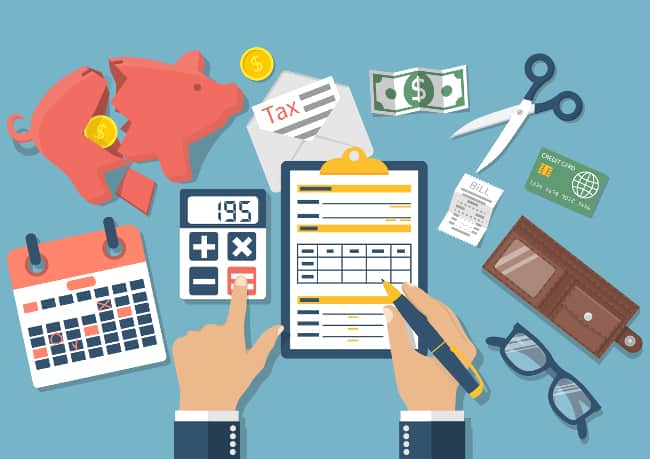Paying off collections with your tax return may seem like a great idea. But there are pros and cons.
Having a collection on your credit report can be stressful, especially if you’re thinking about applying for new credit. How will the lender or creditor view an old collection? Will it hurt your chances? Isn’t it better to pay off the collection and start fresh? Many consumers this time of year will consider using their tax return funds to take care of these old debts. Before doing so, here are some pros and cons of paying off old collections to ensure you are making the RIGHT investment.
Pros of paying your collections with your tax returns:
- Clean Debt Slate – Potential borrowers who feel anxious about their credit report do experience a sense of relief when “clearing the books” of old credit issues. While it’s a psychological benefit and not necessarily a financial one, it’s something many consider doing for their own peace of mind.
Cons of paying your collections with your tax returns:
- Renews Date of Last Activity – The cons of paying off old collections are numerous. To start, any new activity on an old collection threatens to renew that collection. This can call attention to your old mistakes rather than wiping them off your record.
- Possible Score Decrease – It’s also important to know that recent derogatory marks can cause your scores to drop. With the date of last activity being renewed after paying older collections, your credit score may be lowered.
- Collection Mark Stays on Your Report – When a collection is paid, the creditor, lender or collection agency is not required to delete the collection mark. In fact, when you pay off an old collection, your credit report is simply updated to reflect that the delinquent account has finally been paid, instead of having the delinquency simply taken off the record.
- Settled Debts Could be Considered Taxable Income – In some instances, consumers will opt-in for a settlement option to take care of old debts. It is important to note, that the amount that was not paid could be considered cancelled debt. If this is the case, you may have to pay taxes on the cancelled amount at a later date. You can read more about cancelled debt in our previous post.
- Loss of Time and Money – The money you could spend trying to fix things on your credit report may actually do the opposite, so you’re out both the money, and the time. This can potentially delay any financial goals you may have been meaning to reach.
Your credit report may not be accurate. Hire an expert to weed out inaccurate items.
Hire a professional to audit the negative items on your credit report to ensure they are reporting 100% accurate. An FTC study showed that 25% of consumers found errors within their credit reports. There are many instances where collection accounts, late payments, public records, and more can be reporting incorrect. Some negative items can also be time barred or not belong to the consumer from cases of identity theft. When these types of inaccuracies are found, they have to be removed from your credit report.
Don’t make any decisions about your credit before consulting an expert.
If you think there are any inaccuracies on your report consider an investment into credit repair services. Call MSI Credit Solutions today at 866-217-9841 and receive a FREE consultation. MSI Credit Solutions leverages your consumer rights and works on your behalf to remove questionable negative items from your credit report which results in an increase to your credit scores.
 MSI Credit Solutions provides superior credit restoration and comprehensive consulting services that are reliable and affordable. Call today for your free credit repair consultation! Contact us at (866) 217-9841.
MSI Credit Solutions provides superior credit restoration and comprehensive consulting services that are reliable and affordable. Call today for your free credit repair consultation! Contact us at (866) 217-9841.
*The information in this article has been provided strictly for educational purposes.

